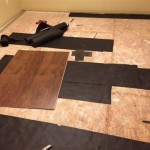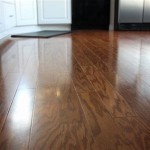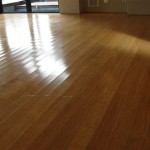Calculating Hardwood Flooring Requirements: Essential Considerations
Installing hardwood flooring can enhance the elegance and value of your home. However, determining the necessary quantity of flooring is crucial to avoid costly overages or insufficient materials. Here are the key aspects to consider when calculating hardwood flooring requirements:
1. Calculate the Floor Area:
Start by measuring the length and width of each room where hardwood flooring will be installed. Multiply these measurements to determine the area in square feet.
2. Estimate Material Shrinkage:
Hardwood planks shrink during installation due to changes in humidity and temperature. To account for this, add 10-15% to the calculated floor area. For example, if your floor area is 500 square feet, you would estimate a shrinkage of 50-75 square feet, resulting in a total requirement of 550-575 square feet.
3. Consider Waste Factor:
Cutting and laying hardwood planks inevitably generate some waste. The waste factor varies based on the plank size, shape, and installation method. Generally, account for an additional 5-10% for waste, bringing the total requirement to 583-633 square feet in this example.
4. Account for Transitions and Thresholds:
If your flooring plan includes transitions between different rooms or thresholds at doorways, calculate the additional materials required. Estimate the length of each transition or threshold and add it to the total square footage.
5. Determine Plank Length:
The length of the hardwood planks you choose can influence the required quantity. Longer planks generally result in less waste, but they may be more difficult to install and maneuver. Consider the size of your rooms and the desired look to select the appropriate plank length.
6. Consider Installation Pattern:
The installation pattern you choose, such as straight lay, diagonal lay, or herringbone, can impact the amount of flooring required. Consult with a professional installer or refer to the manufacturer's instructions for guidance on pattern-specific requirements.
7. Factor in Subfloor Condition:
The condition of your subfloor can also affect the amount of flooring needed. If the subfloor is uneven or has any irregularities, you may require additional materials to compensate for leveling or repair work.
By carefully considering these factors, you can accurately calculate the hardwood flooring requirements for your project. Remember to purchase slightly more material than the calculated amount to accommodate any unforeseen circumstances during installation.

Measuring Guide For Wood Flooring Natural Floor Co

Hardwood Flooring Calculator Measure Square Corp

Measuring Guide For Wood Flooring Natural Floor Co

Flooring Calculator Cost Estimator

How Do I Calculate Much Flooring Need Parrys

A Complete Guide On Wood Flooring Cost Calculation

How To Accurately Calculate Square Footage For Flooring From The Forest Llc

Average Hardwood Flooring S In 2024 Forbes Home
How Much Hardwood Flooring Costs And To Save

Flooring Calculator Everything You Need To Know About It
See Also







